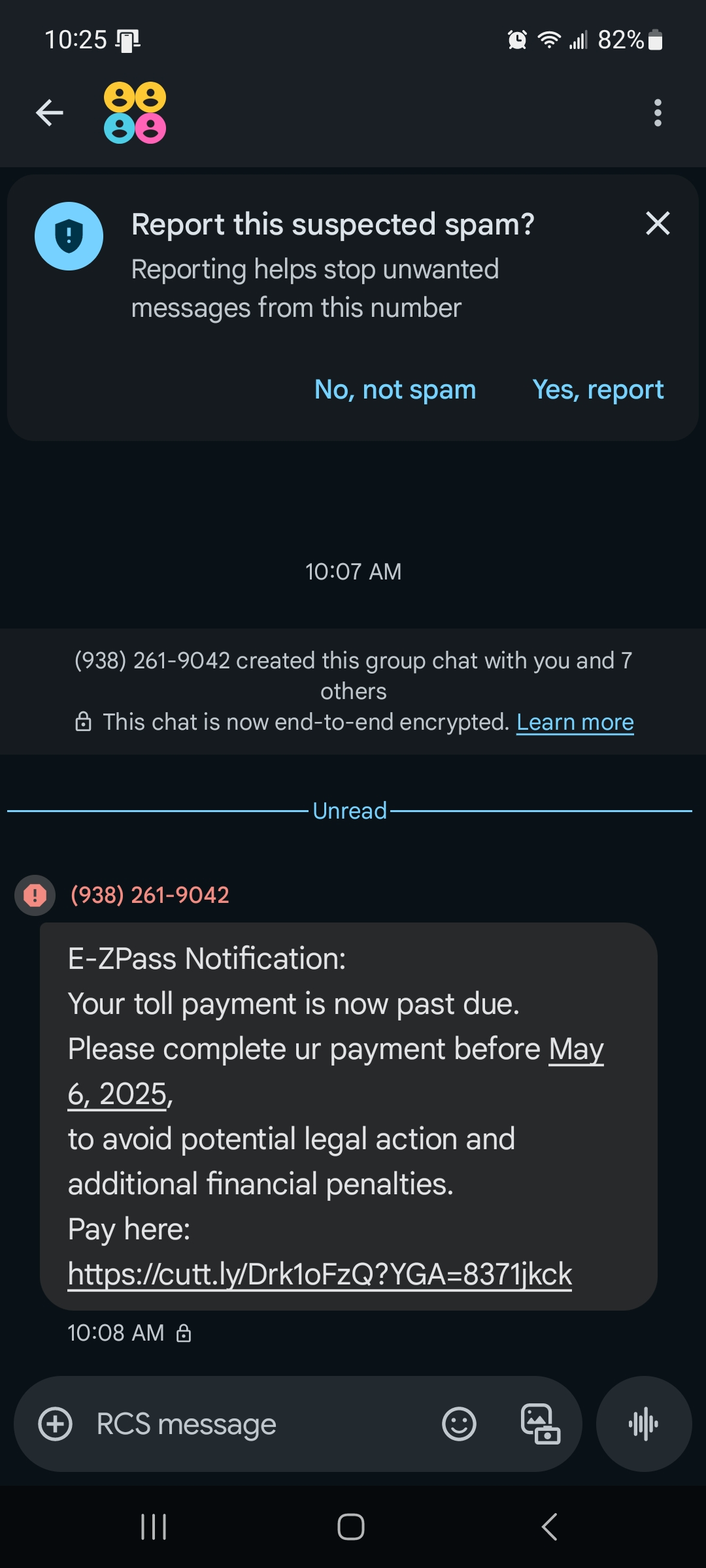Sample Toll Road Scam Text
Cash-free toll lanes are popping up in more and more places across the United States. If you are driving in a new area, covered by a different toll operator, you may not always be sure that you electronically paid for the toll.
Hoping the fear of unpaid tolls may help them make some quick money, scammers are sending out texts claiming you have a toll violation.
The FCC has received consumer complaints about imposters sending fraudulent text messages claiming to be from one of several legitimate toll payment companies, such as E-ZPass (in the mid-Atlantic and Northeast), FasTrak (in California), and I-PASS (in Illinois). The scam texts say that the recipient has an unpaid toll or owes a balance on their account, which will be suspended if immediate payment is not made.
The sender's number may be spoofed to look like it's from a toll company.
The scam text will likely include a link and ask you to click the link to pay immediately or verify your information. The link appears to be an official website, but is actually a phishing site designed to fool you.
Scam messages often ask you to pay through non-standard methods such as gift cards or wire transfers, which is almost always a dead giveaway that it's an imposter scam. Other clues:
- The sender's number may be an international number.
- There may be other phone numbers included as recipients.
The scam message may also use generic greetings such as "Dear Customer" or "E-ZPass user," rather than addressing you by name. E-ZPass typically uses the name on the account in a greeting.
Toll operators typically don't use text messages to collect on overdue accounts, and do not use threatening language to rush customers into action.
What you should do if you receive one of these messages:
- Do Not Engage with the Texter. Do not reply to the message, including pushing a button or responding "Y" or "N."
- Do Not Click any links embedded in the text.
- Find Out if the Text Message Is Legitimate. Call a customer service number or log into your account to check for any valid violations or unpaid tolls. If your account is in order, report the scam text to your toll company.
- If the text claims to be from a toll company operating in a different state, independently find a customer service phone number online and call before sending any money or providing personal information.
- Block the Number. Consider blocking the sender's number to prevent future scam attempts.
- Report the Scam to Law Enforcement. If you suspect a text message is a scam, report it to the Internet Crime Complaint Center (IC3) at www.ic3.gov.
- Do Not Share Your Info. Never share personally identifiable information or financial information in response to unsolicited or suspicious messages.
- Don't Be Bullied. Any request that you receive urging immediate action can lead to a rushed response that may be unwise.
- File a Complaint with the FCC. Your information helps to inform FCC enforcement and policy efforts, and helps us raise public awareness of these scams.
How to File a Consumer Complaint With the FCC
You can file complaints with the FCC about robocalls or robotexts. Information about the FCC's informal complaint process, including how to file a complaint, and what happens after a complaint is filed, is available in the FCC Complaint Center FAQ.
More Information
For more information on how to avoid phone scams, visit fcc.gov/robocalls.
